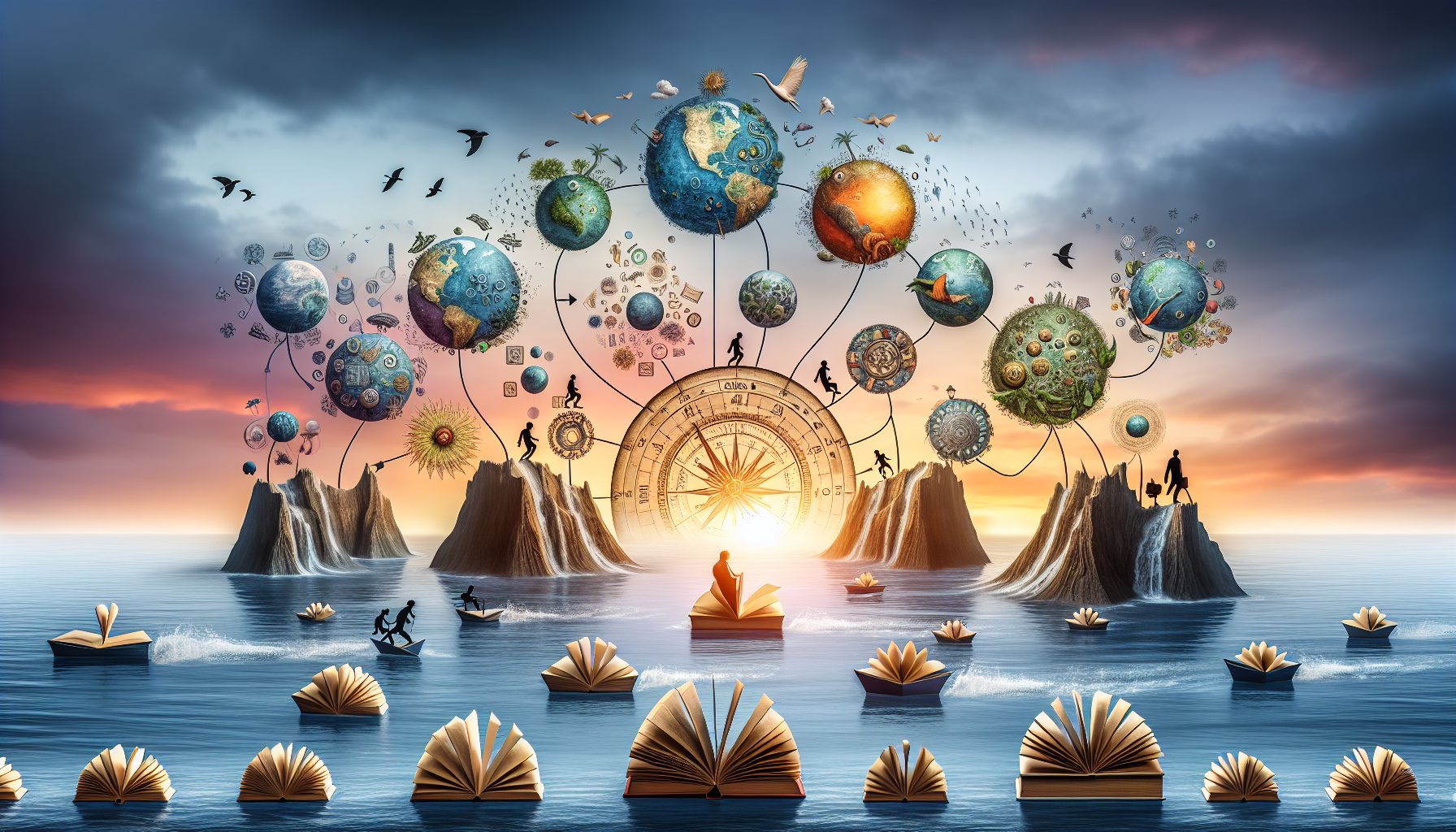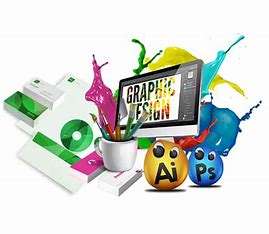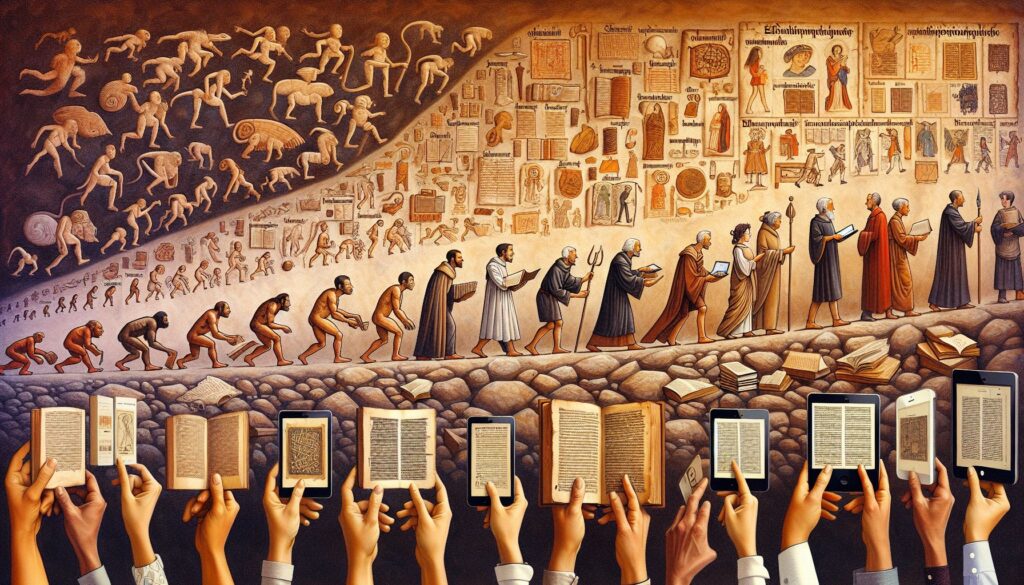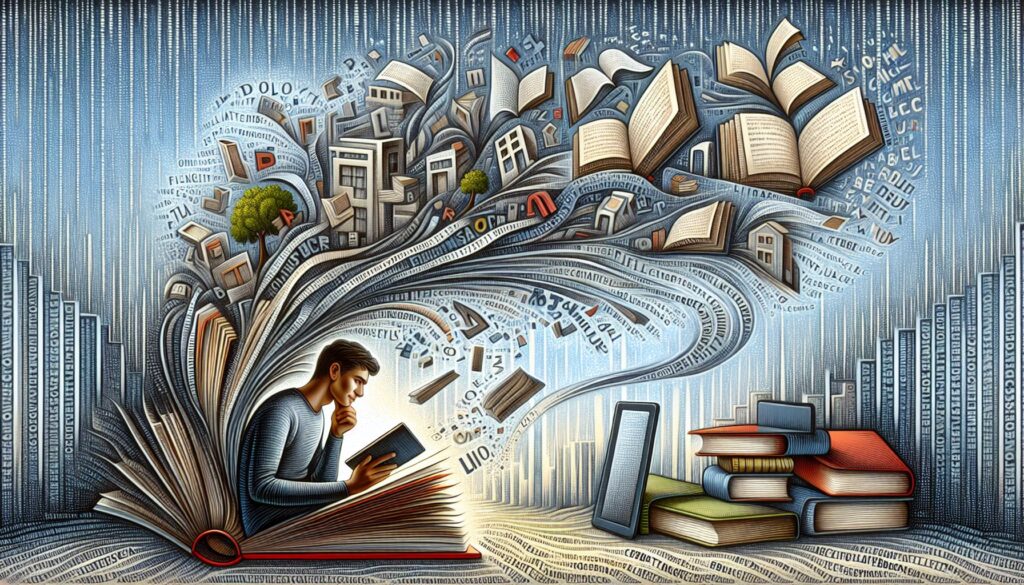Reading a book is akin to embarking on a spectacular journey, one that delves into the minds of writers, offers glimpses into distinct worlds, and increases our knowledge and perspectives. Whether we wish to escape reality through fantasy, explore uncharted territories through science fiction, unravel mysteries through suspense, or seize timeless lessons through classic literature, the world of books provides this and more, summoning us to the magic of storytelling.
In our ever-evolving world defined by technology, examining its influence on books and reading presents a fascinating perspective. Readers now traverse through the realms of eBooks, audiobooks, digital libraries, and more – all a result of significant tech trends, embedded deeply within our culture – reshaping the story of not just humanities but also of technology’s formative role in it.
Today, Artificial Intelligence (AI) boldly transforms the literary landscape. AI-authors create books offering an eerily human-like narrative. Machine learning algorithms suggest books based on our reading history, tastes, and moods, seemingly connecting with our literary souls. This evolution has fostered a new engagement model for authors, publishers, and readers, amplifying accessibility, and fine-tuning personal tastes like never before.
The advent of blockchain has brought a fresh twist to the literary world. Leveraging smart contracts, authors can now directly interact with readers, bypassing traditional publishing hurdles. With its inherent security feature, blockchain dispenses with copyright issues and piracy, buttressing the sanctity of intellectual property, and rejuvenating the business models of publishing.
Moreover, the urgency for sustainability in tech aligns intriguingly with publishing. The emerging shift from ‘print’ to ‘digital’ reduces paper usage and carbon footprint, upholding the environmental cause. While it does spark a duel between traditionalists and technological progressives, the shared love for books and reading hopefully finds a middle ground in this dynamic debate.
Beyond these emergent patterns, technology reignites the joy of reading, placing it within the reach of one and all, democratizing knowledge, and essentially reinscribing culture. It is amidst these discontents and harmonies that we find ourselves standing at the cusp of even grander shifts in the literary world.
As we peer into this fascinating future, it’s uncharted and enticing. Could Virtual Reality (VR) transport us directly into the settings of our favorite books? Might we converse with our beloved characters via Augmented Reality (AR)? Will quantum computing enhance personalization by leaps?
Reflecting upon these questions, we discern that the compass of technology directs the course for narratives in evolution. Weighing these digital forces affecting the world of books, we see not just an alteration in the medium of storytelling but an evolution of human intellect.
In conclusion, books, regardless of their form or the means of delivery, continue to be the vessels of knowledge, imagination, and transformation. Seated at the crossroad of technology and literature, we find ourselves voyaging into untold territories of storytelling resurgence. The symbiosis of books and technology proffers an exhilarating dak voyage, infusing new vigor into the age-old ritual of story absorption, perpetuating the magic of words, transformed and uninterrupted.




